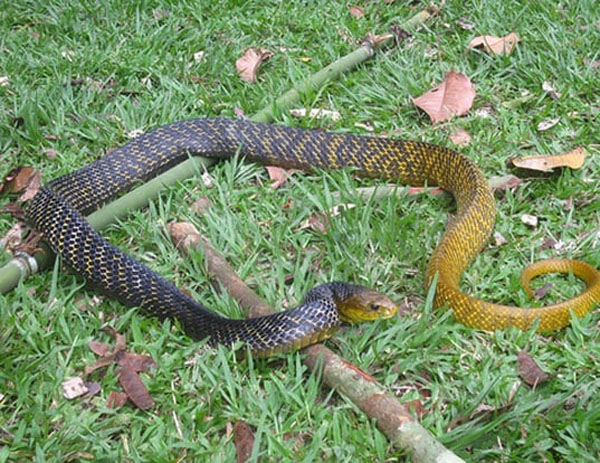The Guyana Wildlife Conservation and Management Commission (GWCMC) is advising that members of the public refrain from harming wild animals that have been seeking refuge inland due to recent flooding around the country.
In a statement uploaded to the Commission’s Facebook pageon Saturday, it reminded that all wild animals play an important role in maintaining life on earth as it cautioned against harming them if they do not pose a mortal threat. “We understand that fear is natural emotion when encountering these animals, however, they should not be killed unless they pose a direct threat to human life,” it said.
The statement comes in wake of numerous sightings of wild animals, particularly snakes and caimans, following recent flooding in numerous parts of the country.
The Commission said the sightings are to be expected since the animals’ habitats have been disturbed.
To safeguard life and property, the Commission advised that interaction with displaced animals is avoided. It said these animals will return to their original habitat when the floodwaters recede. Until then, persons are asked not to overreact, especially in the cases of snake sightings. “Being agitated in the presence of a wild animal will in turn agitate the animal at which point they will try to protect themselves. Exercise caution when entering houses, storerooms or sheds since wildlife looking for refuge may temporarily inhabit these area in looking for shelter,” the Commission said.
In addition, it has advised that persons do not walk barefoot in flooded areas and exercise care when removing debris which can attract the prey of snakes, such as rats, lizards and insects.
Communities that require assistance in dealing with such situations are encouraged to contact the GWCMC. The GWCMC can be contacted on phone number 223-0331, 2230940, 646-1229, 648-8839 or email wildlifemanagementauthority@gmail.com.
In a number of videos uploaded to Facebook, persons can be seen interacting with animals, particularly snakes, which have taken up lodging in their backyards and lower flats since the flooding started.
In one recent video, a man was seen pulling a snake out of a trench near a house. In the video, the man pulled the reptile out from the trench by its tail and another man used a gardening tool to guide the snake into a bag. However in most of the videos shared on social media, the reptiles can be seen trying to return to the waters from which they were removed as persons use pieces of wood or large bricks to crush their heads. In one such video, a man can be heard saying that the dead snake had tried to wrap itself around his dog and a chicken.
Like the Commission, some persons have also used social media to spread awareness about the importance of the animals in the ecosystem and share reasons they should not be killed when spotted. A Facebook user, Francis Bailey, who recently spotted a snake, has identified the snake to be a “Drymarchon corais also known as a Yellow tail Cribo or Indigo snake”. He stated in a post that the snake surely is just trying to live its life and noted that his former encounter with any snakes did not end well for the snake as he did not have time to react to the animal that was crawling toward him. It was a Spilotes pullatus, he said.
In his post, he wrote that it is a learned trait to kill these animals due to a mixture of fear and ignorance. However, he further explained that “we are fearful of being bitten. We know there is no anti-venom to save us if the snake is venomous. We are generally ignorant of which snakes are venomous and which ones are not.” He added that after researching about the snake he recently encountered, he has learned that the snake is non-venomous and eats rodents.






